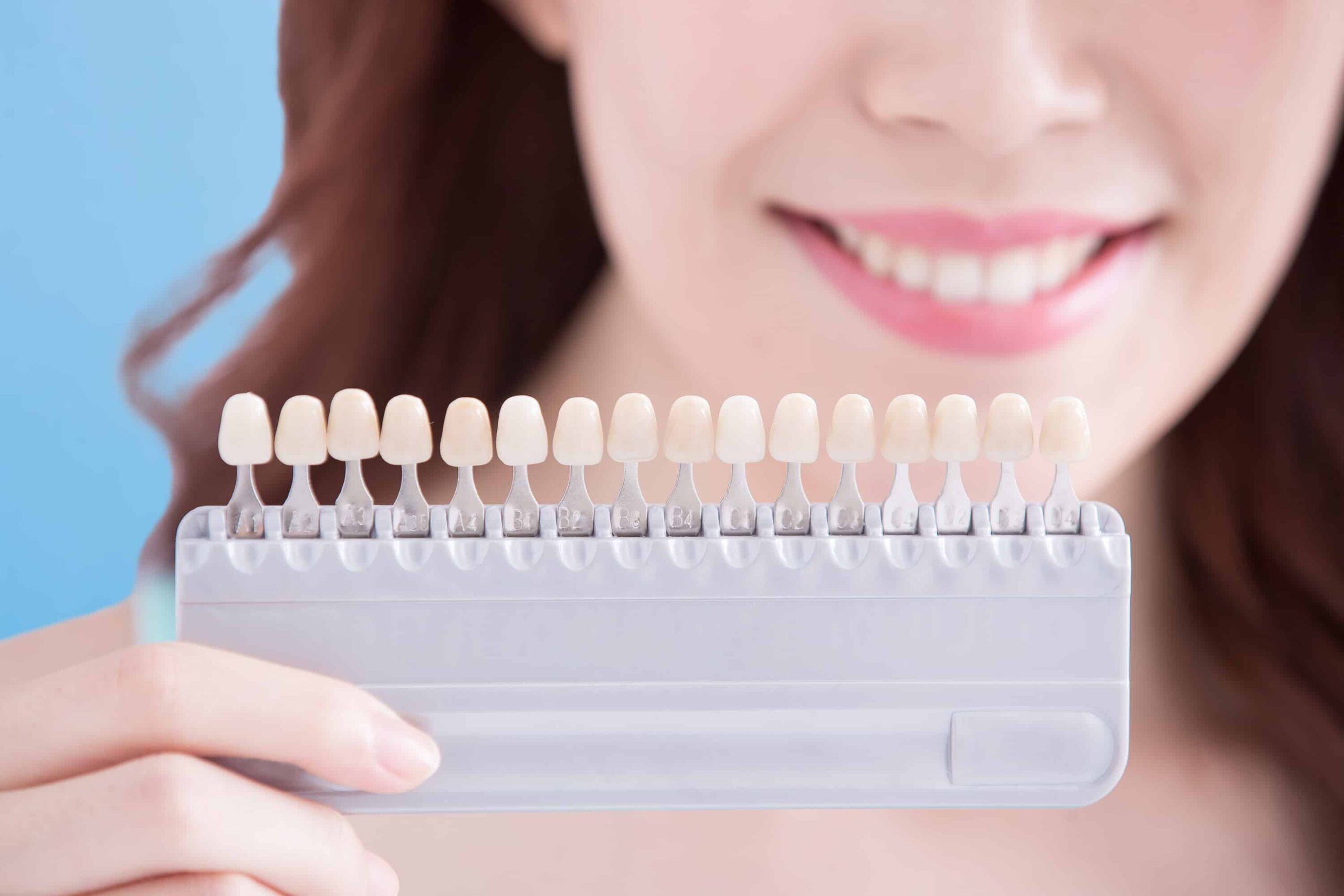Yes, Whitening Your Teeth can damage them if not done properly. It is important to follow the instructions and consult a dentist before whitening your teeth to avoid potential damage.
Teeth whitening products contain bleaching agents that can weaken the enamel and cause sensitivity if used incorrectly. Overuse or misuse of these products can lead to long-term damage to the teeth and gums. Professional dental supervision and regular check-ups are essential to ensure the safety and effectiveness of teeth whitening treatments.
It’s important to be aware of the potential risks and to seek professional guidance to maintain the health and strength of your teeth while achieving a brighter smile.

Credit: www.interdent.com
Teeth Whitening: Balancing Facts And Myths
Teeth whitening has been a popular cosmetic dental treatment for many years. As more people seek a brighter smile, it’s essential to understand both the benefits and potential risks associated with this procedure. In this post, we’ll explore the process of teeth whitening and dispel common myths to help you make an informed decision about enhancing your smile.
Understand The Process And Effects Of Teeth Whitening
Teeth whitening, commonly known as dental bleaching, is a method of lightening the color of your teeth. This treatment can be done either in a dental office or at home using over-the-counter products. The primary active ingredients in most whitening products are hydrogen peroxide and carbamide peroxide, which help to remove surface stains and brighten the appearance of your teeth.
It’s important to note that teeth whitening may cause temporary tooth sensitivity or gum irritation, which usually subsides after the treatment. While the effects of teeth whitening can vary from person to person, many individuals achieve a noticeably brighter smile after undergoing this procedure.
Differentiate Between The Myths And Actual Risks
There are several myths and misconceptions surrounding teeth whitening, leading to concerns about potential damage to the teeth. Let’s address some of these myths and differentiate them from the actual risks associated with teeth whitening:
- Myth: Teeth whitening weakens the enamel.
- Fact: When performed by a dental professional, teeth whitening is a safe procedure that does not weaken the enamel. However, overuse of whitening products or improper application can lead to enamel erosion.
- Myth: Teeth whitening causes permanent damage to the teeth.
- Fact: While teeth whitening may cause temporary sensitivity, when done correctly, it should not result in permanent damage to the teeth or gums.
- Myth: All whitening products are equally effective and safe.
- Fact: Not all whitening products are created equal. Professional whitening treatments performed by a dentist are often safer and more effective than over-the-counter options.
By understanding the facts and dispelling myths surrounding teeth whitening, you can make an informed decision about whether this treatment is right for you.

Credit: Youtube
Whitening Methods And Tooth Damage
When it comes to achieving a brighter smile, many people turn to teeth whitening procedures. However, there is a common concern about potential damage to the teeth due to these methods. Understanding the impact of various whitening procedures on dental health is crucial for making an informed decision. In this section, we will delve into an overview of common teeth whitening procedures and analyze their potential to cause harm.
Overview Of Common Teeth Whitening Procedures
Teeth whitening methods vary in their application techniques, ingredients, and duration. Here are some of the most widely used procedures:
- Over-the-counter whitening products:
Whitening toothpaste, strips, and gels are examples of non-prescription products. They typically contain lower concentrations of bleaching agents compared to professional treatments.
- In-office professional whitening: This involves a visit to a dentist who applies a high-concentration bleaching agent to the teeth, often using a light or laser to activate the whitening process.
- Take-home whitening kits: Dentists may provide custom-made trays along with a bleaching solution for patients to use at home over a period of time.
- Natural remedies: Some people opt for natural methods such as brushing with activated charcoal, baking soda, or using oil pulling to whiten their teeth.
Analyzing The Potential Of Each Method To Cause Harm
| Whitening Method | Potential Harm |
|---|---|
| Over-the-counter whitening products | Due to their lower concentration of bleaching agents, overuse of these products may lead to tooth sensitivity and gum irritation. In some cases, they may not effectively remove tough stains, leading to prolonged usage and potential enamel damage. |
| In-office professional whitening | While this method offers quick and effective results, the high concentration of bleaching agents used during the procedure can cause temporary tooth sensitivity and gum irritation. Overuse or improper application of this method may result in enamel erosion and damage to the tooth pulp. |
| Take-home whitening kits | When used as directed, take-home whitening kits are generally safe. However, if not properly fitted, the trays may allow the bleaching solution to come into contact with the gums, leading to irritation. Overuse of the kits can also result in enamel damage and sensitivity. |
| Natural remedies | While natural remedies are considered safer in terms of chemical exposure, they may not be as effective in whitening teeth. Additionally, abrasive substances like baking soda and charcoal can wear down the enamel if used excessively. |
Does Whitening Your Teeth Damage Them?
When it comes to achieving a brighter, more dazzling smile, many individuals turn to teeth whitening procedures. However, concerns about the potential damage that whitening treatments may cause to the tooth structure often arise. In this article, we’ll delve into the evidence surrounding the claim “Does whitening your teeth damage them?” To offer a thorough grasp of the impacts of teeth whitening on oral health.
Exploring The Evidence Behind The Claim
Various studies and research have been conducted to assess the impact of teeth whitening on dental health. It is essential to examine the available evidence to understand the potential risks and benefits associated with these procedures. By exploring the scientific findings, we can gain insight into the safety and efficacy of teeth whitening treatments.
The Role Of Peroxides In Tooth Structure Changes
One of the primary components used in teeth whitening products is peroxide. Peroxides, such as hydrogen peroxide and carbamide peroxide, play a crucial role in the bleaching process. Understanding how peroxides interact with the tooth structure is vital in determining the potential changes that may occur as a result of teeth whitening treatments. By examining the impact of peroxides on tooth enamel and dentin, we can unravel the mechanisms behind any structural alterations that may occur during the whitening process.
Safeguarding Enamel During Whitening
Whitening your teeth can yield dazzling results, but it’s essential to prioritize the health of your enamel throughout the process. Enamel protection is crucial during any whitening treatment to prevent potential damage. Here are some best practices and recommendations from dental professionals to safeguard your enamel while achieving a brighter smile.
Best Practices For Minimizing Enamel Damage
- Choose professional whitening treatments administered by a licensed dental professional, as they have the expertise to minimize enamel damage while delivering effective results.
- Adhere strictly to the recommended application guidelines and duration provided with your chosen whitening product to avoid overexposure and potential damage to the enamel.
- Use enamel-strengthening toothpaste or fluoride rinse recommended by your dentist to fortify enamel before and after the whitening process.
- Evaluate the hydrogen peroxide concentration in the whitening product and opt for a lower percentage to reduce the risk of enamel damage.
- Refrain from consuming acidic foods and beverages, such as citrus fruits and sodas, during the whitening process to protect the enamel from additional erosion.
Recommendations From Dental Professionals
- Schedule a comprehensive dental exam before starting any whitening treatment to identify potential issues that could affect the whitening process or harm the enamel.
- Consult with your dentist to determine the most suitable whitening method for your dental condition, as individual needs vary and professional guidance is crucial to safeguard enamel health.
- Follow up with your dentist post-treatment for a thorough examination and monitoring of enamel health, ensuring any signs of damage are addressed promptly.
- Consider professional in-office whitening treatments, which offer greater control and oversight to protect the enamel compared to at-home kits or over-the-counter products.
- Request personalized guidance on maintaining enamel health during and after the whitening process, including tailored recommendations for oral care products and habits.

Credit: Youtube
Navigating Between Truths And Exaggerations
When it comes to teeth whitening, misinformation and myths can cloud the decision-making process. Among the sea of conflicting information, it’s crucial to separate fact from fiction to make an informed choice. Let’s delve into the truths and exaggerations surrounding teeth whitening to gain a clearer understanding.
Debunking Widespread Myths Around Teeth Whitening
Myth 1: Teeth whitening weakens enamel and leads to tooth damage.
Myth 2: Over-the-counter whitening products cause irreversible harm to the teeth.
Myth 3: Professional teeth whitening always results in sensitivity and enamel erosion.
Evidence-backed Realities About Teeth Whitening Safety
While myths and misconceptions about teeth whitening abound, evidence-based research offers clearer insights:
- Professional teeth whitening, when performed by a dental professional, is safe and minimizes the risk of damage to the enamel.
- Over-the-counter whitening products, when used as instructed, seldom lead to long-term harm and are generally safe for teeth.
- Maintaining good oral hygiene habits and seeking professional advice can help mitigate potential risks associated with teeth whitening.
Aftercare And Long-term Effects
After undergoing a teeth whitening procedure, proper aftercare is essential to preserve the results and maintain the health of your teeth. Additionally, understanding the long-term impacts of teeth whitening on dental health is crucial for making informed decisions about your oral care.
Maintaining Teeth Health Post-whitening
After whitening your teeth, it’s important to continue practicing good oral hygiene to prolong the effects of the treatment.
- Brush your teeth at least twice a day with a fluoride toothpaste to remove surface stains and maintain overall dental health.
- Floss daily to remove plaque and prevent the buildup of stains between teeth.
- Avoid stain-causing foods and beverages such as coffee, tea, and red wine, or rinse your mouth with water after consuming them.
- Visit your dentist regularly for professional cleanings and to monitor the condition of your teeth.
Understanding The Long-term Impacts Of Teeth Whitening On Dental Health
While teeth whitening can enhance the aesthetics of your smile, it’s essential to consider the potential long-term effects on your dental health.
- Enamel Sensitivity: Teeth whitening may cause temporary sensitivity, but this usually subsides after a few days. Sensitivity can be reduced by using desensitizing toothpaste.
- Enamel Damage: Overuse of whitening products or procedures can lead to enamel erosion, making teeth more susceptible to cavities and sensitivity.
- Gum Irritation: Some individuals may experience gum irritation or sensitivity following teeth whitening. Using a soft-bristled toothbrush and gentle brushing techniques can help prevent irritation.
- If you experience any persistent issues after teeth whitening, it’s important to consult with your dentist to address any concerns and ensure the long-term health of your teeth.

FAQs For Does Whitening Your Teeth Damage Them
Does Teeth Whitening Harm Enamel?
Teeth whitening, when done professionally, doesn’t harm enamel. The process bleaches the stains, but if not done properly, it can lead to enamel damage.
Can Teeth Whitening Cause Sensitivity?
Yes, teeth whitening can cause sensitivity. However, using desensitizing toothpaste before and after the treatment can help alleviate this issue.
Is Teeth Whitening Safe For Everyone?
Teeth whitening is generally safe, but it’s essential to consult a dentist to ensure it’s suitable for individual dental health and identify potential risks.
Conclusion
Teeth whitening can potentially cause temporary sensitivity or gum irritation, but overall, it is a safe and effective cosmetic procedure. It’s important to follow the instructions of a dental professional and use approved products to minimize any potential damage. With proper care, whitening your teeth can enhance your smile without harming your teeth.

I am a dentist and also blog regularly. my target audience is America Europe & providing regular information for them.
